-
E-mail
Austin120521@outlook.com -
E-mail
sales@jujiuhouse.com -
Telephone
+86-17864099991 -
Telephone
+86-17854044442
- Chinese
- French
- German
- Portuguese
- Spanish
- Russian
- Japanese
- Korean
- Arabic
- Irish
- Greek
- Turkish
- Italian
- Danish
- Romanian
- Indonesian
- Czech
- Afrikaans
- Swedish
- Polish
- Basque
- Catalan
- Esperanto
- Hindi
- Lao
- Albanian
- Amharic
- Armenian
- Azerbaijani
- Belarusian
- Bengali
- Bosnian
- Bulgarian
- Cebuano
- Chichewa
- Corsican
- Croatian
- Dutch
- Estonian
- Filipino
- Finnish
- Frisian
- Galician
- Georgian
- Gujarati
- Haitian
- Hausa
- Hawaiian
- Hebrew
- Hmong
- Hungarian
- Icelandic
- Igbo
- Javanese
- Kannada
- Kazakh
- Khmer
- Kurdish
- Kyrgyz
- Latin
- Latvian
- Lithuanian
- Luxembou..
- Macedonian
- Malagasy
- Malay
- Malayalam
- Maltese
- Maori
- Marathi
- Mongolian
- Burmese
- Nepali
- Norwegian
- Pashto
- Persian
- Punjabi
- Serbian
- Sesotho
- Sinhala
- Slovak
- Slovenian
- Somali
- Samoan
- Scots Gaelic
- Shona
- Sindhi
- Sundanese
- Swahili
- Tajik
- Tamil
- Telugu
- Thai
- Ukrainian
- Urdu
- Uzbek
- Vietnamese
- Welsh
- Xhosa
- Yiddish
- Yoruba
- Zulu
- Kinyarwanda
- Tatar
- Oriya
- Turkmen
- Uyghur

foldable tiny home house expandable container casa
html
The Rise of Foldable Tiny Homes: A Practical Approach
In recent years, the concept of foldable tiny homes and expandable container houses has captured the imagination of many who seek affordable, sustainable living solutions. These innovative structures come with their own set of advantages and challenges, often misunderstood or oversimplified by those new to the field.
Understanding Foldable Tiny Homes
Foldable tiny homes have emerged from a simple idea: efficiency in compact living. They are not just scaled-down versions of traditional homes but are engineered to maximize space and functionality. One common misconception is that they are easy to set up without professional help. In reality, the setup requires meticulous planning, especially if you want to take advantage of every inch the structure offers.
The design and construction process involves complex engineering. Lightweight materials are crucial, yet they must be durable enough to withstand transportation and weather. For example, companies like Shandong Jujiu Integrated Housing Co., Ltd. are pioneeringsolutions in this field. Their take on light steel villas and movable board rooms reflects an attention to usability and resilience.
When choosing a foldable home, understanding the thermal insulation and ventilation systems is key. These are often overlooked but are essential for creating a comfortable living environment. Poorly designed systems can lead to condensation issues or energy inefficiency, impacting both comfort and electricity bills.
Expandable Container Homes: Flexibility Meets Affordability
Convertible and expandable container casas bridge the gap between portability and spaciousness. These units are crafted from shipping containers and offer a surprising range of customization options. Unlike foldable models, expandable containers can be reconfigured or expanded after installation, providing a flexible solution for growing families or evolving needs.
For instance, Shandong Jujiu Integrated Housing Co., Ltd. offers a variety of designs that can be adapted to both residential and commercial use. Their products emphasize strength and adaptability, aligning with stringent safety standards. It's crucial to conduct a thorough site analysis to identify potential constraints, like accessibility and foundation support.
Maintenance and upkeep are other critical considerations. While containers are robust, they require regular inspections for rust and structural integrity, especially if the unit faces harsh environmental elements. Retrofitting might be necessary to ensure longevity and comfort.
Industry Insights and Missteps
Having been hands-on in this industry, I’ve seen several pitfalls first-hand: rushed installations to speed up occupancy, cutting corners on materials to reduce costs, or failing to comply with local building regulations. It's vital to remember that integrated housing is not a one-size-fits-all solution.
Shandong Jujiu Integrated Housing Co., Ltd. sets an example with their comprehensive approach to research and development, ensuring that each product phase — from design to installation — is carefully optimized. This meticulous care is sometimes glossed over by less meticulous producers leading to failures down the line.
Documentation, especially concerning transport logistics and structural engineering, is important. It’s easy to underestimate the complexity of these homes, but they require a strong grasp of both architectural design and practical construction skills.
The Sustainable Edge
One of the significant benefits of these homes is their alignment with sustainable living practices. The materials used are often recycled or sustainably sourced, contributing to a smaller carbon footprint compared to traditional construction methods. However, sustainability isn't just inherent; it requires intentional design choices that cater to energy efficiency and material conservation.
Passive solar design, efficient insulation, and rainwater harvesting systems can be integrated to enhance the eco-friendliness of a project. This is something Shandong Jujiu Integrated Housing Co., Ltd. consistently aims to incorporate into their housing solutions.
Sound choices in sustainable technology can greatly enhance the functionality and environmental performance of these homes. Overlooking these options can result in missed opportunities for both cost savings and ecological benefits.
Conclusion: Embracing the Future
The future of housing arguably lies in the innovative designs emerging from this sector. The flexibility, affordability, and sustainability of foldable and expandable container homes present a viable solution for many of today's housing challenges. Yet, informed decision-making and collaboration with experienced providers like Shandong Jujiu Integrated Housing Co., Ltd. are crucial for realizing their full potential.
It's an exciting era for housing technology, albeit one that requires a nuanced approach. The industry thrives on adaptability and precision, ensuring that each structure is not only a home but a testament to modern architectural ingenuity.
If you're considering a transition to an integrated home, thorough research and engagement with seasoned professionals can make all the difference. For more information, visit Shandong Jujiu Integrated Housing Co., Ltd. for a comprehensive look at their offerings and innovations.
Related products
Related products
Best selling products
Best selling products-
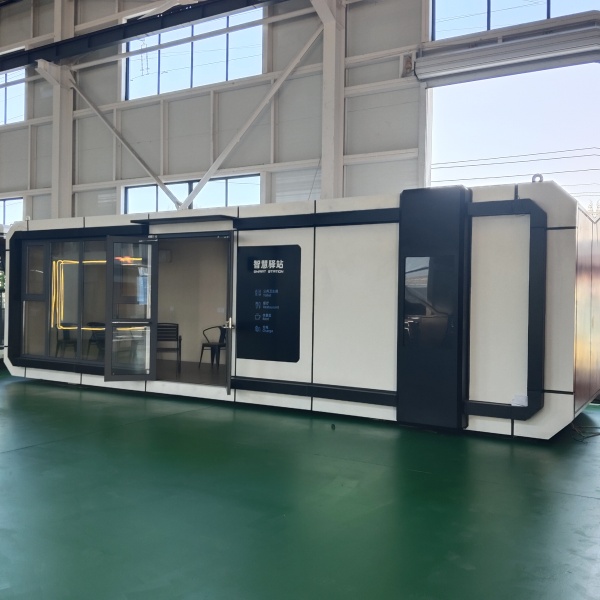 Modular modern movable apple cabins, customized high-end folk houses and portable bedrooms, delivered as a whole
Modular modern movable apple cabins, customized high-end folk houses and portable bedrooms, delivered as a whole -
 A container house with a terrace and double-wing folding design, suitable for various purposes such as offices, meeting rooms, living rooms, etc.
A container house with a terrace and double-wing folding design, suitable for various purposes such as offices, meeting rooms, living rooms, etc. -
 Customized Two Wing Folding Expandable Container House
Customized Two Wing Folding Expandable Container House -
 Movable Prefabricated Container House Villas Modular Portable Homes 1 Bedroom Container House Offices Apartments
Movable Prefabricated Container House Villas Modular Portable Homes 1 Bedroom Container House Offices Apartments -
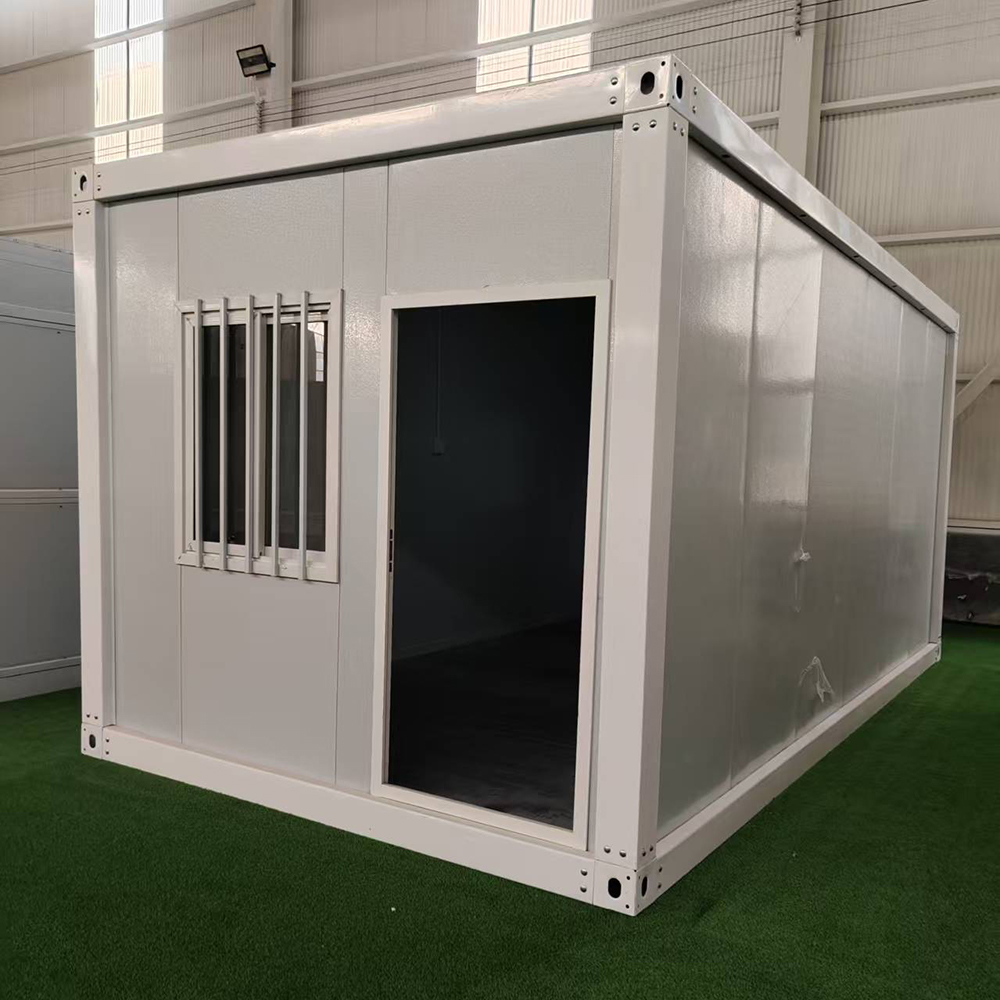 Folding Container Moving House Modular Office Container House Prefab Container for Outdoor Use
Folding Container Moving House Modular Office Container House Prefab Container for Outdoor Use -
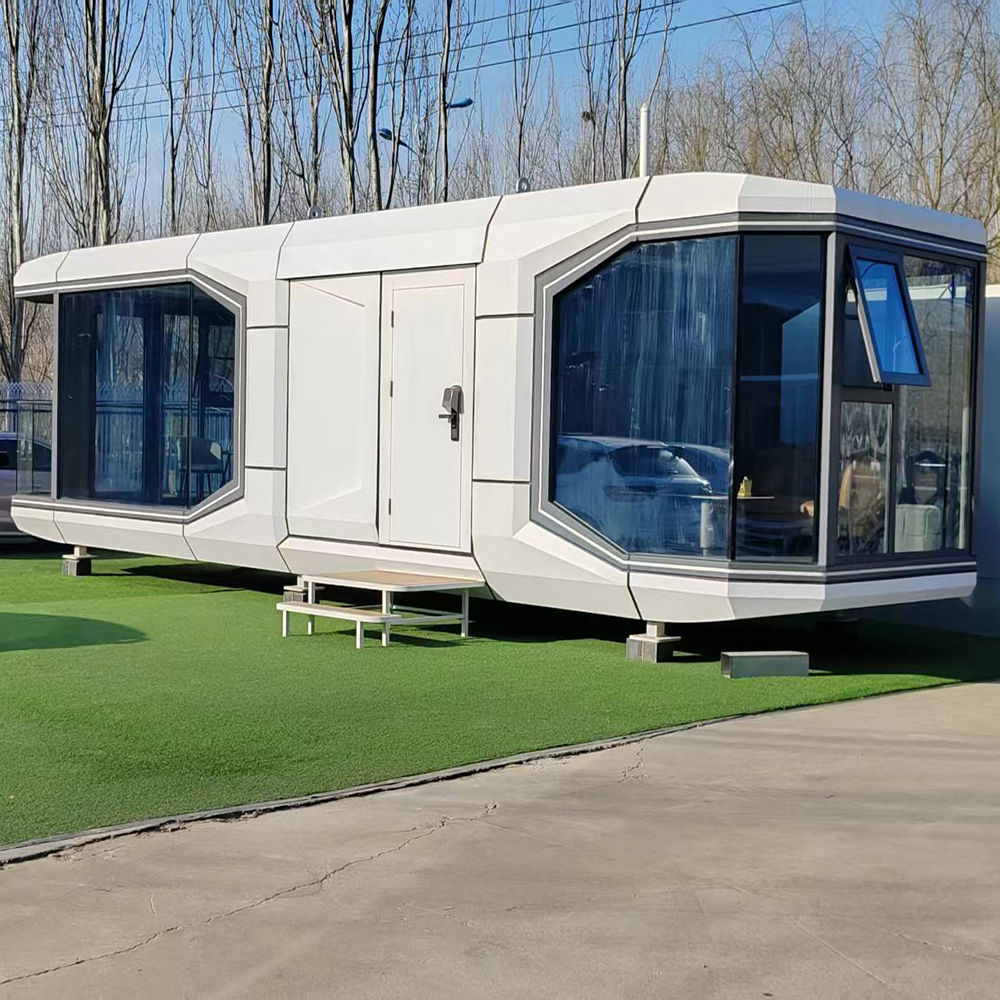 Luxury High Quality 2 Bedroom Container Home Prefabricated Steel Space Capsule for Office Shop Hotel or Outdoor House
Luxury High Quality 2 Bedroom Container Home Prefabricated Steel Space Capsule for Office Shop Hotel or Outdoor House -
 Customized Expandable Container House Holiday Home Folding Prefab Container House with Bathroom and Kitchen
Customized Expandable Container House Holiday Home Folding Prefab Container House with Bathroom and Kitchen -
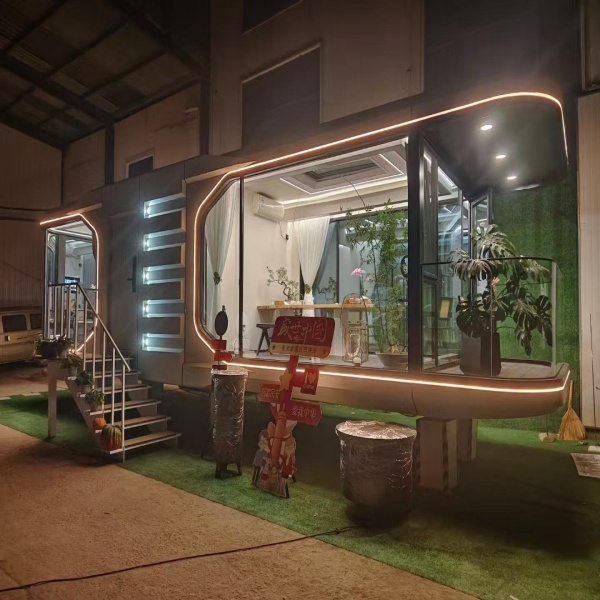 Outdoor ecological capsule rooms, luxury pods, space capsule hotel rooms, prefabricated space capsules, container houses
Outdoor ecological capsule rooms, luxury pods, space capsule hotel rooms, prefabricated space capsules, container houses -
 Hot-selling foldable container houses, expandable prefabricated houses, suitable for office or living use, with fast delivery.
Hot-selling foldable container houses, expandable prefabricated houses, suitable for office or living use, with fast delivery. -
 Detachable Design Prefabricated Container House Portable Modular Office Building Folding Container House
Detachable Design Prefabricated Container House Portable Modular Office Building Folding Container House -
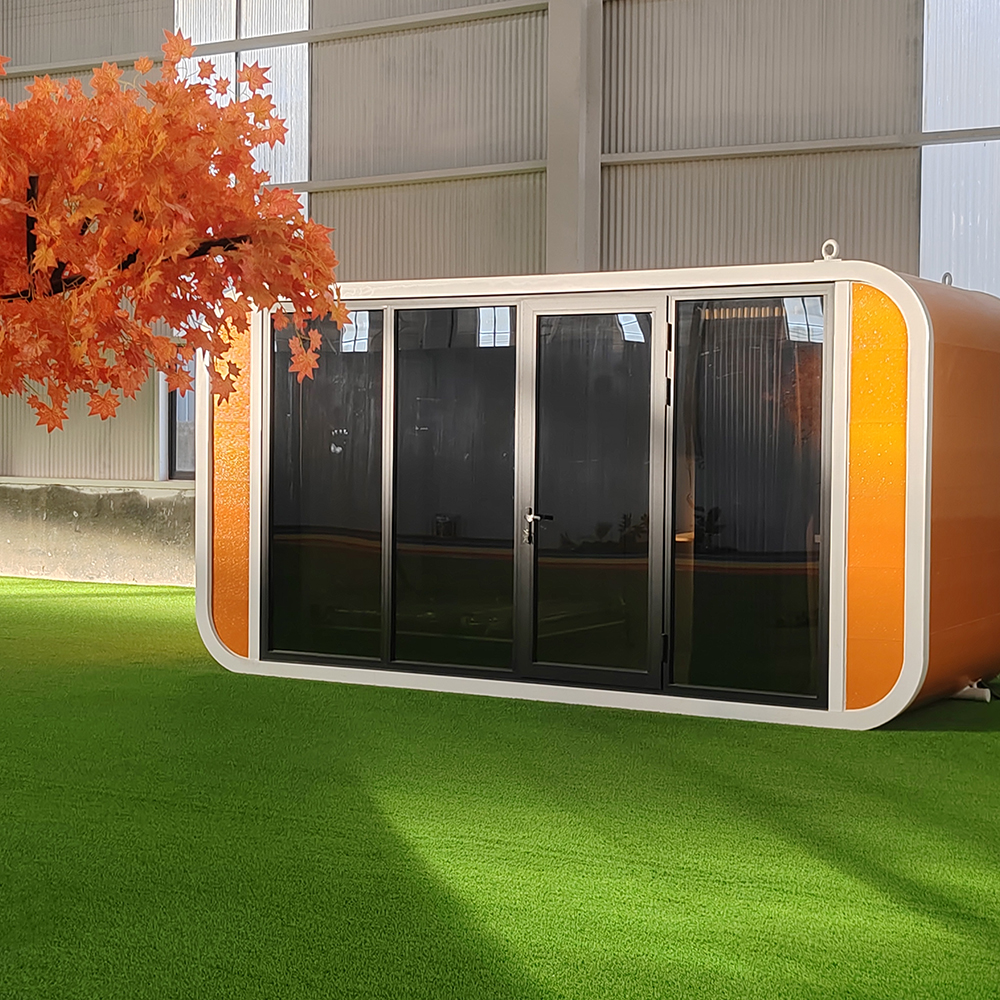 Luxury Prefabricated Living Container House Modular Glass Tiny House Prefab Container Home Apple Cabin
Luxury Prefabricated Living Container House Modular Glass Tiny House Prefab Container Home Apple Cabin -
 Waterproof folding container house – mobile accommodation for campsites/scenic spots
Waterproof folding container house – mobile accommodation for campsites/scenic spots











